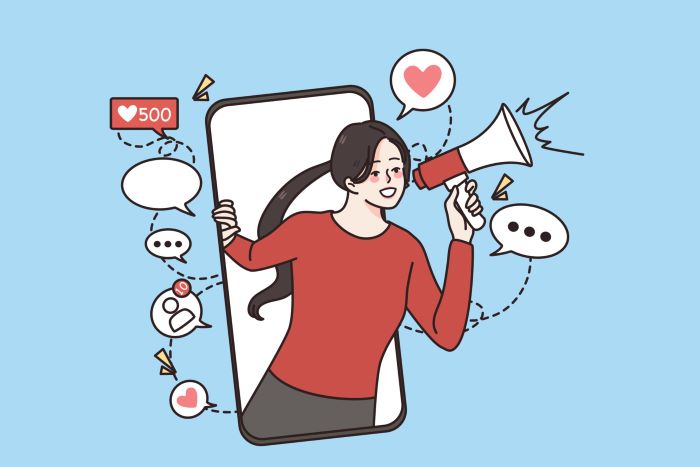Is Social Media Dying?
As someone who has spent his career working in technology I have to wonder if social media is dying. In the beginning social media appeared to be a blessing. It was a universe filled with butterflies and unicorns. Academics authored papers espousing the benefits of it and how it promised to be the start of a gilded age. An age where people, regardless of who they were or where they were would get to know each other better. People would share their hopes and dreams and others would offer encouragement and kindness.

As we look back at this official non-official history and evolution of social media, we find that one the first sites, Friendster, used a name designed to promote that concept. Alas, the world of social media was not destined to remain alone and was replaced by Myspace.
Myspace was different. It was more sophisticated than Friendster and promised the users a more interactive experience. It became the forerunner of the silo experience. You could choose who to include or exclude from your circle of friends. You could easily focus on yourself and promote your activities, but it had drawbacks. It was aimed at a specific demographic of creative persons, so it had trouble gaining acceptance from the general public. Some found it cumbersome and overall, not as friendly, or modern as it could have been. Those shortcomings were evident when the first of what was to become a goliath appeared. Facebook.
Facebook started as a lark, used by male college students at Harvard to pass judgement on the appearance of female college students. Instead of immediately trying to become a major player, it focused on the university market. Facebook introduced, “the wall” a place where a person could leave messages for friends. Since this was much more convenient and easier to use than the old-fashioned electronic bulletin boards that were then in place, Facebook’s popularity grew. Finally in 2006, Facebook opened its doors to anyone over the age of 13 and gave the world the Facebook news feed. The only problem was that in the same year, a company that used the logo of a blue bird introduced itself to the world and Twitter was born.
Theoretically the two should have, and in fact did, coexist for years. Facebook was focused on messages between family and friends and Twitter was focused on short bits of most generic information. For the next four years a sense of peace reigned over the land. Much like radio, television, and newspapers, before them they made their money from selling advertising. Life was, well not good, but predictable and then in 2010, a new player entered the game. Instagram was born and it was an entirely different animal.
It focused on images. The platform seemed to care not about text, it gave birth to an entire industry of cute cat and puppy pictures that were both innocuous and addictive. It grew because of the number of people who live their lives in 30 and 60 second bites of time or who care little for the story behind the headline or the image. Regardless, it soon became a major and competitor and so, as many business giants had done in the past, it was bought out. Now it wasn’t closed down, no in this age of everything bigger is better, it was simply brought under the umbrella of one of its competitors. Facebook.
Life and social media began to settle down into a world where there were two main players. Oh sure, there were, and are some others, Reddit, Snapchat, Tumblr, et al., but none of them had the societal impact of Facebook and Twitter They co-existed and the world tried to figure out a way to use them and then in 2015-2016 the social media world was turned upside down. It wasn’t upset by any new player, well TikTok was introduced in 2016, but it wasn’t the catalyst. No, the catalyst for the seismic shift was the U.S. Presidential election of 2016.
Politicians and others had observed and learned that they could say anything they wanted on social media and people would often blindly believe them. The more rabid of candidates’ supporters could and did use the anonymity of the keyboard to belittle and threaten those who disagreed with them. Instead of being platforms where people were able to simply express their viewpoints, they became platforms of destruction. A place where different political and social organizations could rally their armies of supporters to do verbal battle with their “enemies.” Facts no longer mattered, truth no longer mattered, what mattered was which side could put out the more emotional argument. But text and still images alone are often not good enough for the propagandists, video is best.
Interestingly enough, since 2005 there was a video streaming platform that was quietly becoming a giant. YouTube came out of the Bay Area and offered people the chance to upload their own videos for the world to enjoy. Unfortunately, viewing and uploading videos requires fast technology and it took a few years for the technology to catch up with the concept. The company also encountered multiple legal problems since some of their subscribers uploaded copyrighted material. Regardless, the company not only survived, it thrived, but since it’s not as interactive as the other two, while it has its detractors, it’s not often viewed as a villain. In 2016, another platform was introduced, that did offer more immediate interactions. TikTok came to the U.S. from China and has quickly become a major player in the social media world.

The platforms which were built on the premise of sharing, are not focused on the idea of echo chambers. The algorithms show us what they want us to see and many of us only want to see those things we agree with. We don’t share ideas, we block, mute, curse, name-call, harass those who disagree with our point of view. There are platforms that exist solely to share one side of the political spectrum. That’s not surprising since there are billion-dollar media companies who exist only to share one side of that same spectrum. Social media platforms have become a tool used to divide us. They have become weaponized in the battle for the soul of the world. Disagree?
Watch a few TikTok current event videos, you’ll notice how many, not all, of them are simply untrue. They are fabrications, yet there will often be thousands of people who will like, share, and express solidarity with them. This creates a phenomenon where for millions, the lie becomes the truth. Nazi propaganda chief Joseph Goebbels once said, that if you repeat a lie often enough people will believe it. Social media has become the platform where it is incredibly easy to not only repeat lies, but it also becomes a place where lies become reality.
All of the major platforms have billions of users and views every day, you can’t turn on a phone or tv without someone mentioning one of these platforms, either in praise of or anger against. I’m willing to wager that all of us who put our articles here on Medium have at least several social media accounts. I’d also wager that we check them multiple times a day. So why do I ask if social media is dying or dead? Remember my opening paragraph?
“In the beginning social media appeared to be a blessing. It was a universe filled with butterflies and unicorns. Academics authored papers espousing the benefits of it and how it promised to be the start of a gilded age. An age where people, regardless of who they were or where they were would get to know each other better. People would share their hopes and dreams and others would offer encouragement and kindness.”
Today not so much.
Ever wonder why you might have trouble getting others to understand or listen to you? Check out my audiobook Why Aren’t People Listenting to Me. Available at Apple Books or streaming at Spotify
Questions? Comments? Get in Touch with us
